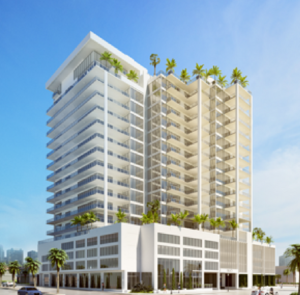 Luxury Home Price Report
Luxury Home Price Report
According to Redfin, the average sale price for luxury homes in the U.S. rose 0.3 percent year-over-year to $1.6 million in the third quarter of 2019. Even though that’s essentially flat, it marks the first time luxury prices did not drop after three straight quarters of decline.
For this analysis, Redfin tracked home sales in more than 1,000 cities across the U.S. (not including New York City) and defines a home as luxury if it’s among the 5 percent most expensive homes sold in the quarter. In the other 95 percent of the market, home prices increased 3.6 percent annually to an average of $319,000 in the third quarter.
Sales of homes priced at or above $1.5 million rose 3.2 percent in the third quarter. The increase comes after three straight quarters of dipping sales in the luxury sector, including a 12 percent annual drop in the first quarter of 2019. Sales of homes priced below $1.5 million experienced a similar annual increase, with a 2.9 percent rise.
Supply of homes priced at or above $1.5 million rose 9.3 percent year-over-year in the third quarter, the sixth consecutive quarter of growth, albeit the smallest annual increase in a year.
The big increase in luxury supply was largely driven by a boost in the number of high-priced homes hitting the market. New listings priced at or above $1.5 million rose 6 percent year over year in the third quarter, while new listings of homes priced below $1.5 million dropped 4 percent.
“Because recession fears peaked over the summer, I expected luxury home prices and sales to dip. But it appears that nerves alone weren’t enough to scare off wealthy homebuyers,” said Redfin chief economist Daryl Fairweather. “The U.S. economy grew faster than expected in the third quarter, partly as a result of healthy consumer spending. Those results, along with flat luxury home prices and rising sales, go to show that Americans are basing their spending habits on their own personal financial situation rather than concerns about global economic tensions. For many, that means strong incomes and good employment prospects.”
Luxury U.S. housing market summary
Biggest luxury price gains
Luxury prices increased in more than two-thirds of the markets tracked by Redfin. West Palm Beach tops the list, with a 128.3 percent year-over-year increase to an average price of more than $3.7 million. It’s followed by two other cities in Florida: Clearwater (up 49.3% to $1.6 million) and Delray Beach (up 47.3% to $2.6 million).
West Palm Beach Redfin agent Elena Glatko said one driving force in the particularly large year-over-year price increase in West Palm Beach in the third quarter was dozens of sales in a new luxury condo building. Sale prices for individual units spanned from roughly $4 million to more than $12 million. Glatko also noted a few other factors that contribute to the area’s strong luxury market.
“Homebuyers can get a lot more for their money in West Palm Beach than in more expensive places like Miami and Palm Beach Island,” Glatko said. “And I’ve noticed that both luxury buyers and sellers feel that real estate is one of the assets least susceptible to economic changes. They believe that over time, luxury real estate is a better investment than the stock market.”
Biggest luxury price declines
Luxury home prices in Charleston, South Carolina declined 17.6 percent to an average of $1.6 million in the third quarter, a bigger drop than any other city. Next come Virginia Beach (down 7.6% to $1 million) and Reno (down 6.9% to about $1.5 million).
Luxury prices also declined in San Diego (down 4% to about $2.6 million), Miami (down 3.8% to about $2 million), San Jose (down 3.2% to about $2.3 million) and Scottsdale (down 1.5% to about $2 million).
“There’s been less activity in the luxury market in Miami over the last few years, and now it’s definitely shifting toward buyer’s favor,” said local Redfin agent Jessica Johnson. “Sellers in the area can’t get away with overpricing their home because buyers are less willing to overpay when they know luxury prices aren’t increasing in Miami–if they can’t get a good deal on one particular luxury home, they can probably go down the street or to another neighborhood and find a seller who is willing to negotiate with them.”
World Property Journal November, 2019
